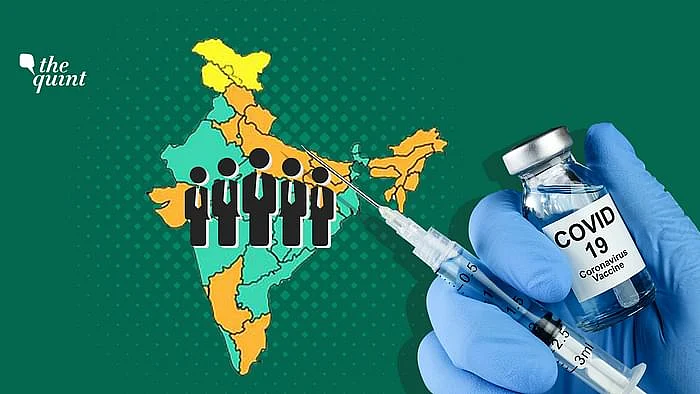The Indian government has major plans for the mass deployment of COVID-19 vaccinations. While little has been revealed of this grand plan, efforts are afoot to vaccinate the healthcare, frontline staff and vulnerable groups. Reports suggest Indian authorities are preparing for a January 2021 rollout. Without formal vaccine approval so far, here are some mistakes that are best avoided.
‘Rush to Approve A Vaccine’
The United Kingdom, Canada and the US have granted approvals to the Pfizer vaccine. This has enabled rollouts in December 2020 itself. The European Union is likely to follow suit. Most countries have booked doses with manufacturers very early on.
India does not have an agreement in the public domain yet.
As a vaccine-manufacturing hub, India is under pressure to ensure it has enough doses for its people.
An easy way to get ahead of the line would be the rapid approval of a vaccine. But this is a mistake best avoided.
Stage 3 clinical trials involve tens of thousands of healthy volunteers. But mass vaccinations involve millions with unknown vulnerabilities. Serious adverse events must be avoided and not normalised, as part of vaccination drives. Experiences of vaccinated individuals in the UK getting severe reactions dent public faith in rapid approvals.
‘Vaccinate Age Groups Not Part of Trials’
Images of a 90-year-old UK woman getting her COVID-19 vaccine shot made headlines recently. Pfizer did not recruit adults above 85 years of age either for its US or EU trials. In their zeal to vaccinate the vulnerable, health authorities can target groups who were not part of clinical trials.
Vaccines get emergency use approvals to vaccinate healthy individuals. Vaccination of untested vulnerable groups is an unnecessary exercise with unknown risks. Left unchecked, this can escalate into a catastrophe real quick.
‘Write Off Some Vaccines’
After Pfizer and Moderna released preliminary data, the Indian Health Ministry wrote them off as ‘unsuitable’ for existing infrastructure. Indigenous vaccine candidates are still in trials, and India must look at vaccination in the long term.
Moderna revealed that antibodies raised by its candidate declined after three months.
To fight COVID-19, we don’t need many cheap vaccines. We need a vaccine which confers long-term protection. Writing off vaccines without knowledge about their effectiveness can be a costly mistake.
‘Punish Whistleblowers’
A trial volunteer has filed a lawsuit against Serum Institute of India alleging its vaccine is unsafe. In response, the vaccine manufacturer is countersuing the volunteer for damaging its reputation. What is lost in this exchange of accusations is that the Drug Controller General of India (DCGI) has not submitted its analysis of the incident. Instead, it has allowed the trial to continue.
This raises doubts over trial protocol, volunteer recruitment and assessment of the trial outcomes.
That the entire episode was under wraps till the lawsuit was filed is worrying. The Serum Institute trial is the most advanced vaccine trial in India.
A quick redressal for doubts, fears and complaints is the need of the hour. Delays in concluding whether the serious adverse event was the result of vaccination or not is a punishment meted out by DCGI.
‘Sell Vaccines As Cures’
As vaccines make it to the markets, people will rush to get their doses and haste to return to the pre-pandemic normal.
While it is important to convey that vaccines are safe, it is pertinent to remember they are not cures.
Haryana’s health minister volunteering for a vaccine trial and testing COVID-19 positive 15 days later shows that vaccines are not immediately effective.
There is much that we do not know about vaccines. Pfizer does not know if vaccinating people stops transmission of the virus. AstraZeneca claims its candidate can reduce transmission by only 27 percent.
No, Getting Vaccinated Doesn’t Mean ‘Return To Normal’
So, vaccination can protect you from COVID-19. However, your resumption of normal life can spread the disease to many who aren’t vaccinated.
Should you then indulge in an overtly active lifestyle? We do not know how long immunity is conferred by these vaccine candidates. So, we must stop selling vaccines as the ‘end of the pandemic’.
Instead, a vaccine will be an additional tool to fight the pandemic. Physical distancing, mask usage, testing, tracing and isolating will remain the means to fight COVID-19 even after the vaccine becomes available.
We are still far away from returning to a pre-pandemic world. We must avoid mistakes that keep us here.
(A molecular biologist by day and a blogger by night, Ameya Paleja writes about genetics, microbes and the future of technology at Coffee Table Science. Scientific research and policy making are also areas of his interest. You can tweet to him at @ameyapaleja. This is an opinion piece and the views expressed are the author’s own. The Quint neither endorses nor is responsible for them.)
